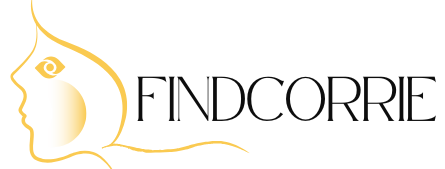In the world of women’s health, knowledge is power, and R. Mimi Secor’s “Advanced Health Assessment of Women” is the ultimate toolkit. This fifth edition dives deep into the intricacies of women’s health assessments, blending evidence-based practices with a sprinkle of humor—because who said learning about health can’t be fun?
Table of Contents
ToggleOverview of Advanced Health Assessment of Women 5E
R. Mimi Secor’s “Advanced Health Assessment of Women, 5th Edition” serves as an essential guide for healthcare professionals conducting women’s health assessments. This edition integrates rigorous evidence-based practices with practical applications, enhancing clinicians’ skills in evaluating women’s health issues effectively.
It contains updated protocols for comprehensive assessments, highlighting specific health concerns relevant to women, such as reproductive health, cardiovascular risk, and mental health challenges. Each chapter presents detailed instructions on techniques for physical examinations and patient interviews.
Incorporating case studies and illustrative examples, the text fosters a deeper understanding of complex clinical scenarios. Readers benefit from its user-friendly layout, facilitating quick reference to vital information during practice.
The emphasis on a holistic approach prioritizes individualized care, advocating for cultural competence and sensitivity. Moreover, new content includes current guidelines and emerging trends in women’s health, ensuring practitioners stay informed about evolving practices.
Overall, this edition emphasizes the critical nature of advanced health assessments, equipping providers with the knowledge and skills necessary for comprehensive women’s healthcare.
Key Features of the Textbook
“Advanced Health Assessment of Women, 5th Edition” by R. Mimi Secor offers essential insights for clinicians. This edition focuses on integrating practical skills with rigorous evidence, enhancing healthcare professionals’ ability to assess women’s health effectively.
Comprehensive Coverage of Women’s Health
Comprehensive assessments cover a wide array of topics tailored specifically to women’s health. Reproductive health remains a primary focus, addressing issues like pregnancy and menstruation. Cardiovascular risk factors receive significant attention, highlighting the unique challenges women face. Mental health concerns, often underreported, are included to ensure holistic evaluations. Each chapter explores a distinct aspect of women’s health, providing clinicians with robust frameworks for patient interactions. Case studies illustrate real-world applications, enhancing learning through practical examples.
Evidence-Based Practices
Evidence-based practices form the backbone of the textbook. Current clinical guidelines underpin each assessment technique, ensuring relevance and accuracy. Recommendations are grounded in the latest research, promoting best practices in women’s health. Illustrative examples support theoretical knowledge, fostering a comprehensive understanding of the subject matter. Emphasis on developing critical thinking skills prepares practitioners for diverse clinical scenarios. Resources encourage continual learning, aligning with the evolving landscape of women’s healthcare practices.
Clinical Applications
This section explores the practical clinical applications of “Advanced Health Assessment of Women, 5th Edition.” It highlights crucial assessment techniques and presents real-life case studies for better understanding.
Assessment Techniques
Assessment techniques in this textbook facilitate accurate evaluations of women’s health. Each chapter presents detailed instructions on various physical examination methods. Utilizing patient interview strategies, practitioners can gather essential information effectively. Specific techniques address unique health challenges, such as reproductive and cardiovascular issues. Standardized protocols ensure consistency and reliability in assessments. Critical thinking is emphasized throughout, enabling healthcare providers to navigate complex clinical scenarios confidently. This comprehensive approach aligns with current best practices, ensuring assessments are rooted in evidence.
Case Studies
Case studies included in the textbook illustrate real-world applications of assessment techniques. Each scenario showcases different health concerns that women face, offering insight into practical problem-solving. Real examples enhance clinicians’ understanding of theoretical concepts, making the learning experience engaging. Critical issues such as pregnancy complications, mental health challenges, and chronic conditions are represented in these case studies. Practitioners can analyze patient interactions and decision-making processes effectively through these examples. Overall, these case studies serve as valuable resources for enriching clinical knowledge and improving patient care.
Insights from R. Mimi Secor
R. Mimi Secor presents a wealth of knowledge in “Advanced Health Assessment of Women, 5th Edition.” Each chapter explores women’s unique health needs, emphasizing protocols that address reproductive health, cardiovascular risk, and mental well-being. Guidance on physical examination methods supplements theoretical foundations, making assessments practical and accessible.
Understanding the role of evidence in clinical practice is crucial. Evidence-based practices underline every assessment technique, enhancing accuracy and relevance. Current clinical guidelines inform practitioners, ensuring that skills align with contemporary healthcare standards.
Case studies featured in the book illustrate real-world scenarios. These practical examples help bridge the gap between theory and practice, allowing practitioners to analyze patient interactions effectively. Insights from case studies reinforce the importance of holistic care, particularly in identifying complex health concerns.
Critical thinking emerges as a vital skill in this text. Different health situations presented in various chapters challenge readers to adapt their approach. Learning to navigate diverse clinical scenarios prepares healthcare providers for any situation that arises.
Standardized protocols offer a framework for consistency. This structure promotes reliability in health assessments, crucial for effective patient evaluations. Readers can appreciate the step-by-step instructions provided, which facilitate a confident approach to women’s health.
Overall, professionals gain powerful tools from Secor’s work. The emphasis on practical skills combined with robust evidence equips healthcare providers with the capabilities needed for comprehensive women’s healthcare.
R. Mimi Secor’s “Advanced Health Assessment of Women, 5th Edition” stands out as an indispensable tool for healthcare professionals. Its blend of evidence-based practices and practical applications equips clinicians with the skills needed to navigate the complexities of women’s health.
With a focus on key health concerns and detailed examination techniques, this resource enhances the quality of care provided to women. The incorporation of real-world case studies bridges theory and practice, reinforcing the importance of holistic evaluations.
Ultimately, Secor’s work empowers practitioners to approach women’s health assessments with confidence and competence, ensuring they can meet the unique needs of their patients effectively.




